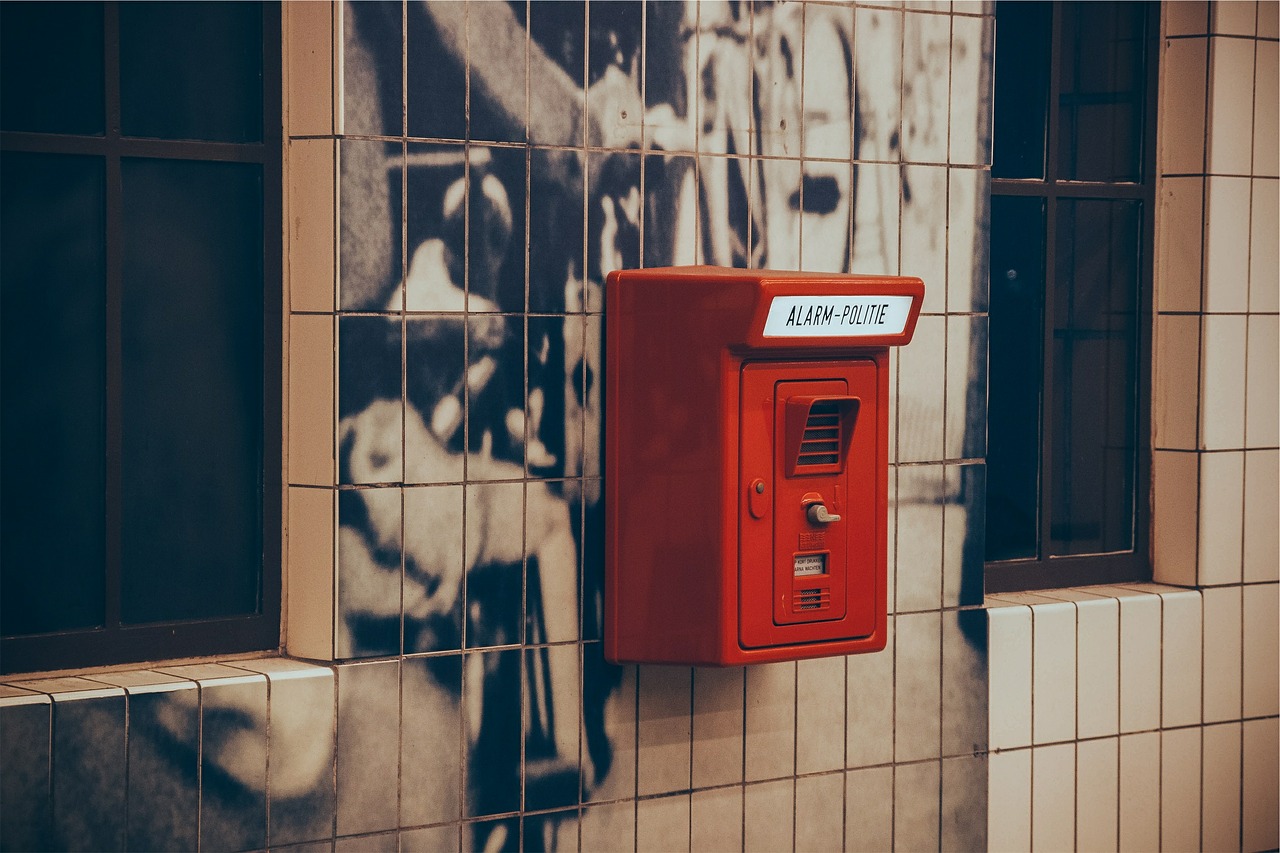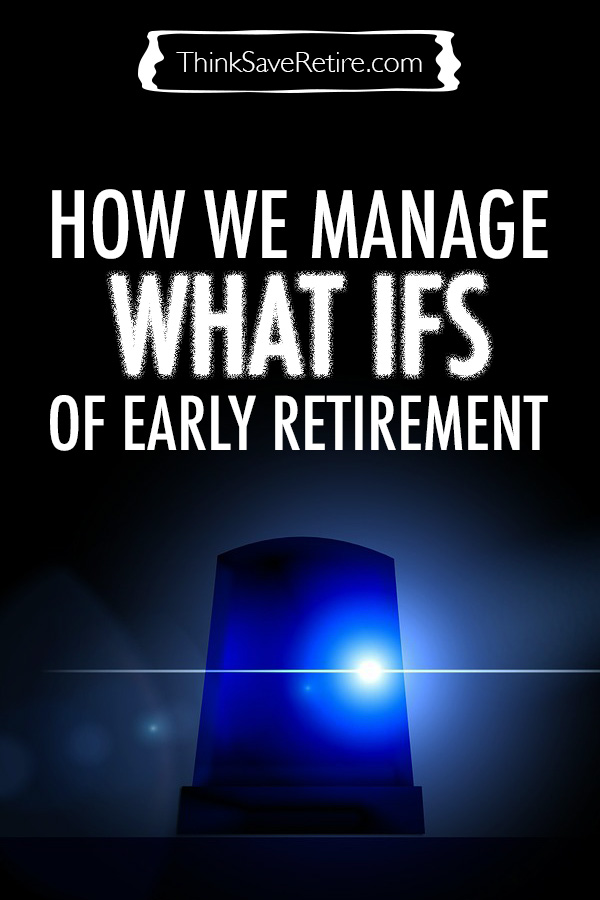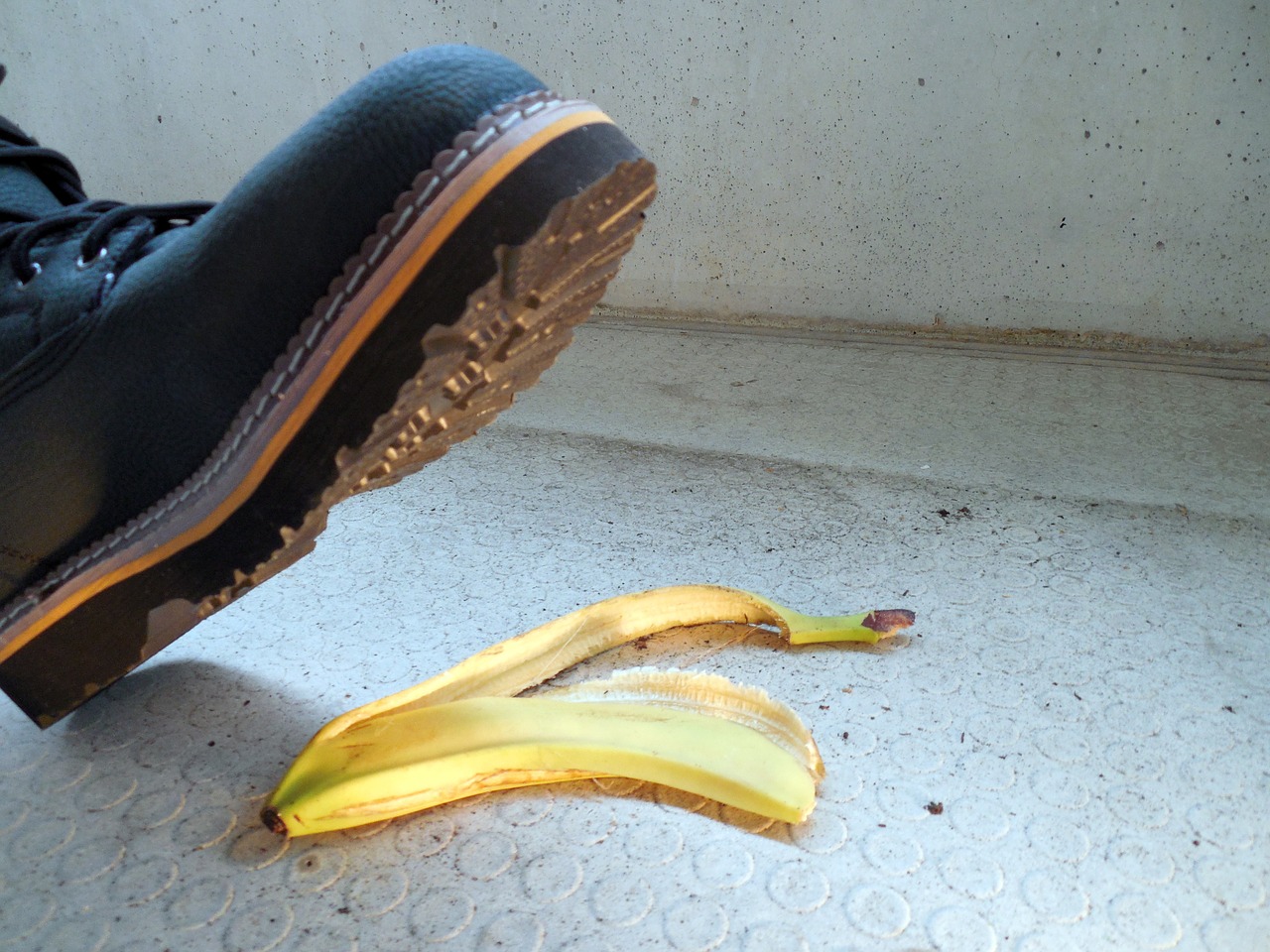How to address the "what if" scenarios of early retirement

Remember my retirement renaissance article that got picked up by Business Insider a few months ago? I wrote about how fascinating the comments get when early retirement goes mainstream, but even within the finance community, things aren't always as encouraging as you might expect.

I can easily ignore the "fluff piece" nonsense, but a few of the comments are actually quite reasonable, and one in particular bears some further discussion. It was written by "MetroChick" as the ninth reply to the initial post, and it addresses worst-case scenarios.
A quote from the comment:
"More power to them, but I wonder if they've run any worst-case scenarios, such as what if one gets diagnosed with a serious illness like cancer, where it's best to stay in one place to get treatment, living in an RV might not be comfortable for someone, and co-pays and out of pocket costs can be considerable."
This comment isn't so much about healthcare as it is a question about what if this doesn't work? Healthcare or otherwise, what if something happens after we've hit the road and we suddenly have huge bills to pay or expenses that we did not anticipate?
It's a good question, but the number of "what-ifs" are nearly limitless. What if we get cancer and need treatment? What if I fracture my arm on a hike? What if the Airstream trailer breaks an axle and requires expensive repairs? What if one of our dogs gets sick and needs expensive medication?
What if this, what if that.
To the question of "what if", my answer is simple: We can't control or anticipate everything. We do the best we can, accumulate at least a year's worth of living expenses in short-term savings and adjust to life's demands as we encounter them.
How we approach life's what if scenarios

My wife and I are health fanatics. We cook mostly vegan at home and are avid gym goers. We do our very best to keep ourselves happy, healthy and insanely energetic. But you know what? Shit happens.
And we can't necessarily control all that shit.
I might get hit by a car. I might break my ankle. Virtually anything can happen in this world, and our early retirement philosophy is to do our best to put ourselves in a position to respond to many of life what ifs, but honestly, there is no way that we could possibly cover every what if.
Our view on the what ifs of ER comes down to three basic principles:
- We keep at least a year's worth of expenses in short-term savings
- We understand that things happen and we can't control everything
- We remain flexible enough to adjust when necessary
In fact, I wrote last week about how we are adjusting to the stock market weirdness - and we aren't even retired yet. In the end, it all comes down to the same basic principle: flexibility. We know anything can happen out there on the road, and if we end up making significant changes to our anticipated lifestyle to make it all work, so be it.
Here are a few examples to consider.
Example: What if we don't like the RV lifestyle?
My wife and I love to travel and live small, so the chances that we don't like the RV lifestyle are pretty small. But, we won't truly know until we get started, and this is one of the most-asked questions of us when people find out that we are retiring to do this. What if we don't like it?
We sell the RV (Airstreams tend to hold their value very well) and move on. We might look for an apartment or condo somewhere in a beach town and settle down again for a while until we figure out exactly what we want to do next. Our cost of living will likely be a touch higher, so we might reduce our expenses even further or find some part-time work or an online gig to hold us over and keep our minds active. In other words, we aren't going to be dead-in-the-water if we find out the RV lifestyle just isn't for us. It happens, but life goes on.
Example: What if one of us contracts a debilitating disease along the way?
Then, well, that would truly suck. Like, hardcore suck. But if it happens, then we survey our options and decide on the best course of action for us at that point in time. We will have at least a year's worth of expenses already saved in short-term savings to hold us through and pay for out-of-pocket medical costs. And if things get really bad, we might lean on family to provide support if absolutely necessary. Though in truth, if we contract a debilitating disease, a full-time job would probably be the least of our worries at that point.
Example: What if the stock market never recovers / fails to meet expectations?
Throughout our estimated calculations, we budgeted a 6% rate of return on our investments with a planned safe withdrawal rate (SWR) of around 3 to 3.5%. This will give us a little buffer to withstand less-than-steller market conditions, like the latter half of 2015 and the beginning of 2016.
If we find that we are spending more than our estimated 3 to 3.5% SWR, or that the market isn't performing up to our conservative expectations, then we make adjustments to our lifestyle. We reduce our expenses by eating out and moving the RV around less. Or, we find odd jobs or work camp more. The truth is when you're flexible and mobile, your ability to adjust and make shit happen gets so much easier. After all, we can move anywhere for the right opportunity.

It's interesting. I find that the what ifs in life only seem to matter when early retirement is the subject. Most people don't possess a fraction of the emergency savings that my wife and I do, but yet, it seems to be early retirees like us who get the majority of the what if questions.
It is only natural, I get it. We no longer have a consistent income. Our expenses suddenly matter much more than they once had. But let's face it - the majority of early retirees have a firm enough grasp on money and risk management to have established reasonable measures to confront unforeseen expenses and changes in the demands of life.
Truthfully, a successful early retiree is the last person that I'd worry about.
If everything fails and we need a ton of cash, we get a job again and work for another couple years and then try our post-retirement mission once more. If one of us gets diagnosed with cancer and the RV is no longer the best place for us to live, then we sell the RV and live somewhere else.
In other words, we would do what anyone else would do. Humans are incredibly flexible and adapting people.
RV living will likely make it easier
Our ability and willingness to do whatever we have to do in the face of a worst-case scenario is not compromised by the fact that we don't have full-time jobs and live in a 200 sqft RV. If anything, our ability to appropriately respond is arguably enhanced due to the absence of an expensive mortgage, property taxes, cars and utilities.
Our footprint is much smaller and our needs are significantly less than the majority. As far as I am concerned, this puts us in a better position to make potentially tough choices for our future. It means we can go anywhere and do anything at the drop of a hat.
Truthfully, if we had a significant medical issue to deal with, the last thing that we'd want is a big house to maintain or a full-time job to commute to. We would certainly get a job if needed, but honestly, that is our worst-case scenario.
And at the very least, my wife and I will have the last five, 10, 15 or more years of travel to reflect on without regret. If a medical problem befalls us in 10 years, neither of us wants to work the next 10 years in a cold and dreary office waiting for the inevitable.
We are choosing the fun route, the route of adventure and excitement - where stress is the exception rather than the rule. Things should work out. But if they don't, we adjust by spending less, work camp more or find part-time work here and there to bring in some additional cash.
The bottom line: We keep a year's worth of emergency spending in short-term savings and do the very best we can to make it work. If life throws us a curve-ball, then we do our best once again to confront the challenge and move on.
We can't live life worrying about the what ifs. We won't.
Have fun. Be adventurous. At the end, no regrets.